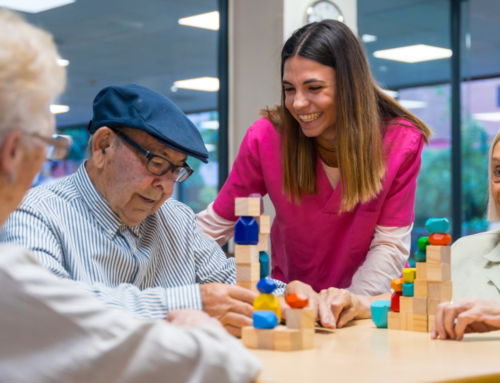Share This Story!
Head Trauma Can Lead To Uncertain Risks
Head trauma is a severe condition and affects over 2.6 million people in the US every year. There are significant risks to head trauma patients after discharge from the hospital, such as falling at home or impaired memory. A short-term care facility can reduce the risk of these complications and help patients heal in a supportive environment.
Serious head trauma injuries come in many forms
Head trauma occurs when there is an injury to the brain, scalp, or skull. There are different types of head injuries, which all have varying degrees of limitations for patients. Some types of head traumas include:
- Concussion
- Contusion
- Intracranial hematoma
- Skull fracture
Planning for the care of head trauma patients
For many head trauma patients, care is required around the clock. Head traumas are serious medical conditions that can result in permanent disability and mental impairment. Assistance with daily activities such as bathing, feeding, and walking may be necessary.
When will a head trauma patient be fully recovered?
Head trauma recovery is not an exact science. Every patient and injury is different and may require an extra level of support and care. The brain heals slowly, and a patient may need extended care for months or years afterward. A short-term care facility can aid in the healing process.
Rehabilitation programs help head trauma patients heal
Once a head-injured patient is discharged from the hospital, a rehabilitation program can be essential to recovery. Transfer to a short-term care facility for rehabilitation may expedite further improvement. During rehabilitation, a short-term care facility can also help family members to understand a patient’s limitations and set realistic expectations for improvement.
Difficulties of at-home caregiving
Many family members want to help head trauma patients immediately after discharge from the hospital. However, head trauma can require months to years of continuous support and therapy to aid recovery. Many caregivers may find difficulty providing the necessary level of care that a loved one requires to aid healing. A short-term care facility has resources an at-home setting cannot offer a head trauma patient.
A short-term care facility can provide continuous care
To ensure the best recovery from head trauma, rehabilitation must begin promptly. Patients may have to relearn basic skills and adapt to restrictions in functioning. A short-term care facility can provide exceptional support for rehabilitation. Care includes help with daily activities, occupational therapy, and physical therapy.
Making the right choice for your loved one
Many complications can occur after head trauma. A licensed healthcare facility can help prevent these complications and risks. When selecting the right place for a head trauma patient to recover, choose a short-term care facility that offers a supportive environment to promote the healing process.





